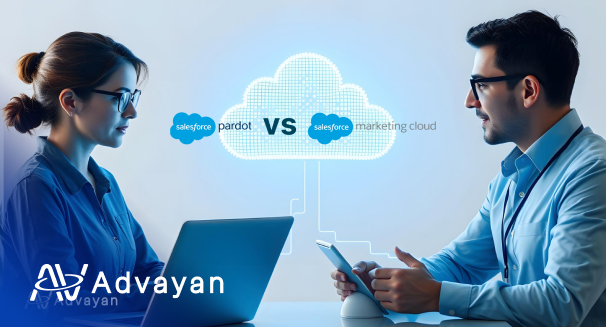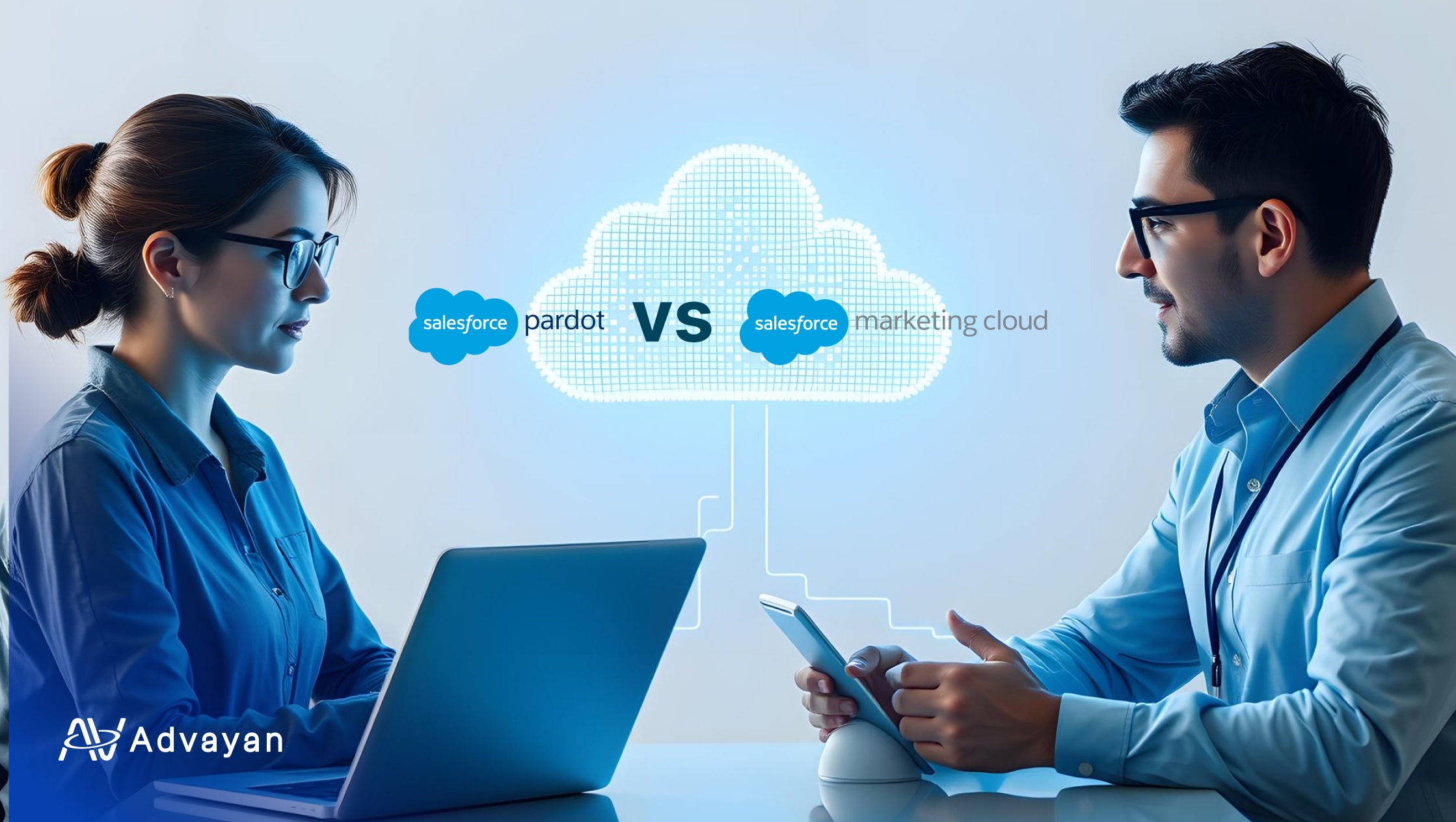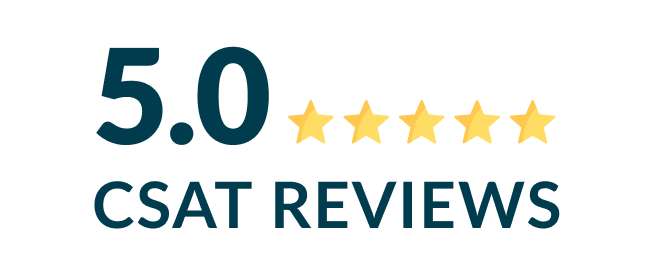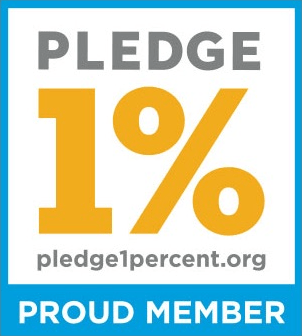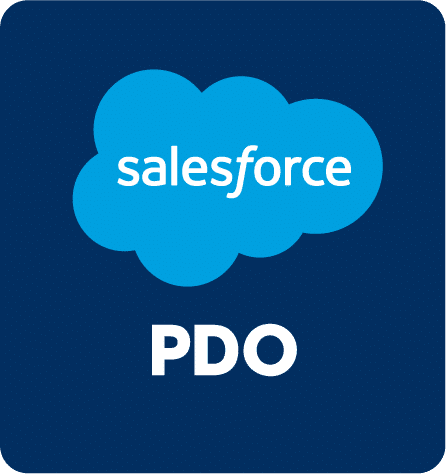
Marketing Cloud Account Engagement (Pardot) vs Marketing Cloud: What’s the Difference?
Salesforce’s decision to rebrand Pardot as Marketing Cloud Account Engagement in 2022 has created confusion among users about the best platform choice. These solutions promise to boost marketing efforts but serve different purposes. A wrong platform choice could result in a 12% revenue loss, yet the right decision might increase ROI up to 300%. The distinction between these platforms is vital to making the right choice. Marketing Cloud Account Engagement (formerly Pardot) stands out for B2B marketing with complex sales cycles. Marketing Cloud Engagement proves more effective for B2C marketing that involves larger prospect databases.
Advayan’s expert team has analyzed both platforms thoroughly to help you make an informed decision that matches your business’s goals. This piece breaks down the main differences between these powerful marketing tools. You’ll find detailed information about their technical foundations and pricing structures, which range from $1,250 to $4,000 monthly for Marketing Cloud Account Engagement.
What is Pardot and Marketing Cloud?
Marketing Cloud Account Engagement and Marketing Cloud are two different Salesforce products that serve different marketing needs despite their similar names.
Marketing Cloud Account Engagement (previously known as Pardot) is a B2B marketing automation platform built for businesses that deal with longer sales cycles and complex purchasing decisions. This platform works best at lead nurturing, scoring, and qualification—especially when you have sales teams handling high-value transactions. The system tracks prospects through extended buying experiences that often need multiple decision-makers and touchpoints.
Marketing Cloud is a detailed B2C marketing platform that helps businesses market to consumers at scale. This solution manages large volumes of customer data in a variety of channels like email, mobile, social, and web. Unlike its B2B counterpart, Marketing Cloud builds customer experiences instead of lead qualification processes.
These platforms differ in their target audiences and core functionalities:
- Marketing Cloud Account Engagement prioritizes lead management, complex qualification workflows, and tight Salesforce CRM integration for B2B sales teams
- Marketing Cloud focuses on multi-channel consumer participation, journey building, and tailored experiences for B2C marketing teams.
The similar names come from Salesforce’s 2022 rebranding initiative. They renamed Pardot to Marketing Cloud Account Engagement to line up with their product ecosystem. But the technologies behind them stay different Account Engagement keeps its original B2B architecture, while Marketing Cloud runs on a separate technical foundation optimized for consumer marketing.
You need to understand these basic differences before making implementation decisions. The platforms vary in their target markets, pricing structures, integration capabilities, and ideal use cases. This matters even more for organizations that have both B2B and B2C components. Knowing which platform to use can affect your marketing effectiveness and return on investment by a lot.
Understanding the Core Differences Between Pardot and Marketing Cloud
These platforms have differences that go way beyond their names. You need to learn about these differences to pick the right solution that matches your business needs.
B2B vs B2C Marketing Focus
Marketing Cloud Account Engagement (Pardot) is a social-first B2B marketing platform. Marketing Cloud Engagement shines in B2C environments. This difference comes from the unique approaches each marketing type needs. B2B marketing targets a small, focused market that uses multi-stage procurement processes. Product education and awareness drive these relationships. The buying decisions need careful thought and multiple stakeholders get involved. Marketing Cloud Account Engagement provides tools for lead scoring, nurturing, and qualification. These features help navigate complex B2B relationships effectively.
Marketing Cloud Engagement runs on consumer-facing scenarios. Marketing campaigns must capture customer interest quickly and keep the checkout path short and appealing. Its complete suite of tools aids real-time, individual-specific communication in a variety of channels.
Platform Architecture and Technical Foundation
The platforms differ significantly in their architecture. Marketing Cloud Account Engagement works partly on its own platform and partly on the core Salesforce platform. Marketing Cloud has its own platform, separate from the core Salesforce infrastructure.
Marketing Cloud Account Engagement works as a “What You See Is What You Get” tool. A certified specialist can manage standard setups easily. Marketing Cloud offers various “Builders” and “Studios.” Some need specialized expertise and complex data management skills.
Buying Cycle and Decision-Making Process
The buying cycle is a vital difference between these platforms. Marketing Cloud Account Engagement suits businesses that sell high-value products or services. These sales need longer decision-making processes with multiple stakeholders. That’s why many call it a B2B marketing tool.
Marketing Cloud works better for businesses with shorter sales cycles, lower-value goods, and higher customer volumes. Its reliable multi-channel capabilities handle large prospect databases well, though individual sales values might be lower.
Key Features Comparison: What Each Platform Does Best
Both Salesforce platforms come with strong marketing features that cater to their target audiences. You can choose the right solution by understanding what each platform offers.
Marketing Cloud Account Engagement (Pardot) Capabilities
Marketing Cloud Account Engagement stands out in B2B marketing. It offers specialized tools that work well with complex sales cycles. The platform’s strength lies in lead generation and nurturing through landing pages, forms, and targeted campaigns. Its lead scoring and grading system helps you spot sales-ready prospects based on how they interact and their demographic match. On top of that, it has robust marketing automation tools that make repetitive tasks easier while keeping communication with prospects steady. The advanced reports give you useful insights into campaign results and prospect behavior.
Marketing Cloud Engagement Functionality
Marketing Cloud takes an all-encompassing approach to digital marketing with tools built for B2C participation. The Journey Builder sits at its core with an easy-to-use interface that creates tailored customer paths across channels. You can segment audiences better using detailed demographic and behavior criteria. The platform’s omnichannel marketing tools help coordinate consistent experiences through email, social, mobile, and web. Content management makes creation and distribution smooth, while AI-powered predictive intelligence improves engagement.
Automation and Personalization Tools
Each platform utilizes automation in its own way. Marketing Cloud Account Engagement automates prospect tracking and qualification. It adjusts content based on prospect scores, grades, industry, and job titles. Marketing Cloud Engagement, however, focuses on automating smart customer experiences. It optimizes channel selection and creates complete omnichannel journeys. Both platforms offer dynamic content features that adapt messages to match recipient characteristics.
Integration with Salesforce CRM
The biggest difference between these platforms lies in integration. Marketing Cloud Account Engagement blends naturally with Salesforce CRM right out of the box. This helps marketing and sales teams line up their efforts. Marketing Cloud can work with Sales Cloud too, but setting it up takes more effort. This difference matters a lot when your organization needs marketing and sales operations to work closely together.
Pricing Structure and ROI Considerations
The choice between marketing platforms depends heavily on their pricing structures. Each platform’s cost reflects its unique architecture and target market.
Marketing Cloud Account Engagement Cost Breakdown
Marketing Cloud Account Engagement comes with four pricing tiers. The Growth plan costs $1,250 per month and covers 10,000 contacts with simple lead-generation tools and email campaigns. Companies that need better analytics can pick the Plus tier at $2,750 monthly. This tier adds automation features and unlimited landing pages. The Advanced package runs at $4,400 monthly and includes Einstein AI and developer sandboxes. Big enterprises usually go for the Premium plan at $15,000 monthly. This plan supports 75,000 contacts and comes with predictive analytics and premium support. Every plan needs a yearly contract, which affects budget planning.
Marketing Cloud Pricing Model
Marketing Cloud uses a different approach with its modular pricing split into “Studios” and “Builders.” Basic licenses start at $400 monthly per organization. The price quickly jumps into four figures as you add more modules. The platform has four editions—Basic, Pro, Corporate, and Enterprise. Each comes with different features. You need at least the Corporate edition to use Journey Builder, which helps map visual campaigns. On top of that, special tools like Social Studio ($1,000-$40,000/month) and Advertising Studio ($2,000/month) cost extra. This makes the total cost harder to calculate than Account Engagement.
Calculating Return on Investment for Each Platform
The ROI formula works like this: MROI = (Marketing Value − Marketing Cost) / Marketing Cost.
Companies using Marketing Cloud have seen a 299% return in three years. Their success shows in better conversion rates (60% by year three), faster campaign creation (60%), and less time spent on reports (90%). Companies that use Account Engagement with Sales Cloud turn leads into sales faster. Salesforce solutions boost marketing ROI by about 37%, and some companies work 35% better.
Your business model should guide your final choice. B2B companies with longer sales cycles get better results from Account Engagement. B2C companies handling more customers see bigger returns from Marketing Cloud’s multi-channel features.
Advayan’s Expertise in Pardot Implementation
At Advayan, we begin with a detailed assessment to tailor Pardot to your marketing needs. This helps us generate and nurture leads effectively. Next, we integrate Pardot with your Salesforce CRM and tech stack. This gives you immediate insights and continuous support, ensuring your system stays flexible and your investment pays off.
- Discovery & Customization:
- We start with a thorough assessment to understand your sales cycles and marketing needs, enabling a bespoke Pardot solution.
- Our experts optimize lead generation, scoring, and nurturing workflows tailored to your business.
- Seamless Integration: We integrate Pardot with Salesforce CRM and your existing tech stack, ensuring a unified view and real-time analytics for informed decision-making.
- Ongoing Support: Our team provides continuous training, proactive monitoring, and regular optimization to keep your system agile and effective.
Partner with Advayan to transform your marketing operations and maximize ROI through expert Pardot services.
Final Take: Which Is Best for Your Business Needs?
The best marketing automation platform depends on your business model and marketing goals, not just industry buzzwords.
Here are the key questions to ask yourself when choosing between Marketing Cloud Account Engagement (formerly Pardot) and Marketing Cloud:
- Do you have long sales cycles with multiple decision-makers involved in each purchase? Marketing Cloud Account Engagement is your best bet.
- Does your sales process revolve around Salesforce Leads and Opportunities? Marketing Cloud Account Engagement works better with this workflow.
- Are you managing transactional purchases across multiple marketing channels? Marketing Cloud will serve you better.
Marketing Cloud Account Engagement shines for businesses selling high-value products that need extended nurturing periods. This platform bridges the gap between sales and marketing teams effectively, which makes it perfect for products with long sales cycles. B2B companies with smaller databases but higher-value sales find this platform matches their needs perfectly. Marketing Cloud stands out with its versatility for organizations handling large customer volumes across many channels. Retail and FMCG industries use it to guide customers through their buying trips. The platform excels at managing large databases, though individual sales values tend to be lower.
Integration capabilities play an important role in the decision. Both platforms connect with Sales Cloud, but Marketing Cloud’s integration needs more work compared to Marketing Cloud Account Engagement’s simple out-of-box setup.
Budget often becomes the deciding factor when both platforms could work for you. Marketing Cloud costs more due to its modular structure – you pay for the edition plus individual module subscriptions. Marketing Cloud Account Engagement offers simpler edition-based pricing with optional add-ons for lower tiers.
Quick Comparison Table
| Aspect | Marketing Cloud Account Engagement (Pardot) | Marketing Cloud |
|---|---|---|
| Main Focus | B2B marketing automation | B2C complete marketing |
| Target Market | Businesses with complex sales cycles and high-value transactions | Consumer-facing businesses with large customer volumes |
| Platform Architecture | Operates partially on own platform and partially on core Salesforce platform | Exists entirely on its own platform |
| Key Features | – Lead scoring and grading – Lead generation and nurturing – Landing pages and forms – Marketing automation – Campaign performance reporting |
– Journey Builder – Omnichannel marketing – Advanced segmentation – Content management workflows – Predictive intelligence/AI |
| Integration | Smooth out-of-box integration with Salesforce CRM | More complex integration with Sales Cloud |
| Pricing Structure | Tiered pricing: – Growth: $1,250/month – Plus: $2,750/month – Advanced: $4,400/month – Premium: $15,000/month |
Modular pricing: – Simple starts at $400/month – Additional modules priced separately – Social Studio: $1,000-$40,000/month – Advertising Studio: $2,000/month |
| Ideal Use Cases | – Complex B2B sales cycles – Multiple stakeholder decisions – High-value products/services |
– Large-scale consumer marketing – Multi-channel campaigns – High-volume customer databases |
| Sales Cycle Focus | Long sales cycles with multiple decision-makers | Short sales cycles with immediate customer involvement |
Conclusion
Salesforce’s marketing platforms cater to different business needs. Marketing Cloud Account Engagement is ideal for B2B companies with complex sales cycles and high-value deals. It works well with Salesforce CRM and offers reliable lead scoring and nurturing tools. Marketing Cloud is better suited for B2C companies with large customer volumes across various channels. It provides detailed Journey Builder and advanced segmentation tools for customized customer experiences. Advayan’s specialized Salesforce Pardot services can help guide you through this decision process and implementation based on your specific needs. Choose a platform based on your business model, sales cycle length, and target audience.

